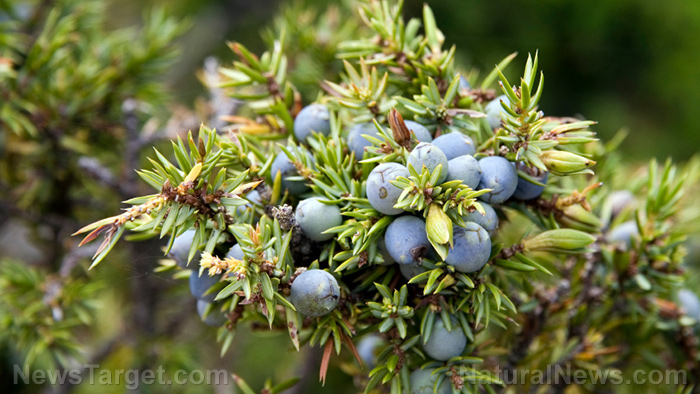
Advertisement
Protecting your home doesn’t have to only be limited to barbed wires, high fences and burglar alarms. One underrated but effective way of deterring thieves from your home is to make your garden passively work in your favor. This is also known as defensive landscaping. Not only is it more affordable than a conventional home security system, but it is also better for the environment. Here are 10 simple garden plants you can use as a passive form of home defense. (h/t to SurvivalSullivan.com)
Creeping juniper
Also known as blue rug, the creeping juniper is a low-growing evergreen shrub that is best placed underneath windows and other openings around your home. This will help prevent intruders from gaining access to a second floor. Because the creeping juniper is a low-maintenance plant, it can thrive in most areas where other ornamental plants are unlikely to survive, which is why it is often used for ground cover.
Common holly
Also known as Christmas, Mexican or European holly, the common holly is a slow-growing plant that forms a bush. While the plant is often associated the festive holidays, the common holly bush bears jagged, spiky leaves that are painful to the touch, making it an excellent perimeter plant for deterring unwanted intruders.
Golden bamboo
Golden bamboo is another plant that is ideal for barrier hedging around your property. Unlike most other plants on this list, the golden bamboo does not discourage potential trespassers with spikes or thorns. Instead, it is a noisy plant that swishes at the slightest movement. That might not seem like much, but any intruder trying to force their way through dense bamboo stalks would inevitably cause loud cracking sounds for you to hear. Plant golden bamboo stalks close together in a line to form an impenetrable barrier that naturally provides cover from prying eyes.
Devil’s thorn
If there’s any place around your home where you don’t want an intruder to get on their hands and feet, that’s where you should plant the devil’s thorn. This ground creeping plant produces seeds with pointy thorns that give it its sinister name.
Roses
Roses are well known for their natural beauty and their prickly thorns. If you want to give your garden a touch of color while also providing some added protection against potential thieves, you can strategically plant rose bushes beneath your window.
Agave
You might know of the agave plant for the nectar it produces that is often used as a natural sweetener. But did you know that this succulent can also help keep your home safe from intruders? The agave plant’s long, slender leaves have sharp teeth that can scrape the knees of anyone too curious for their own good. (Related: Health Benefits of Agave Nectar and Reasons to Include it in Your Diet.)
Oleaster
The branches of the oleaster tree have painful spines that are sure to let trespassers know that they’ve gotten too close for comfort. As an added bonus, a well-tended oleaster tree can supplement your survival food supply by producing delicious fruit and edible flowers.
Blackthorn
The blackthorn bush gets its name from the sharp lethal spines that cover the entire plant. Farmers commonly use blackthorn bushes to keep their cattle from going astray. As such, this protective plant can similarly help prevent unwanted persons from straying too near your home.
Giant rhubarb
For an effective barrier against unauthorized entry, use a giant rhubarb to cover any weak spots in your garden. This Brazilian plant lives up to its name with its gigantic leaves that can grow up to four inches in diameter. The undersides of these enormous leaves are covered with spikes. Giant rhubarbs are best suited for homes without any small children or animals and are located near rivers or streams.
Berry bushes
While not a single specific plant, berry bushes are a great way to protect your home with a dense tangle of thorny vines. Some examples of these prickly berry bushes include blackberry, raspberry and gooseberry. Plus, you can harvest their delicious berries to add to your survival pantry.
Be prepared for anything by carefully choosing the protective garden plants that are best suited for your home.
Sources include:
Advertisement
Advertisements
















